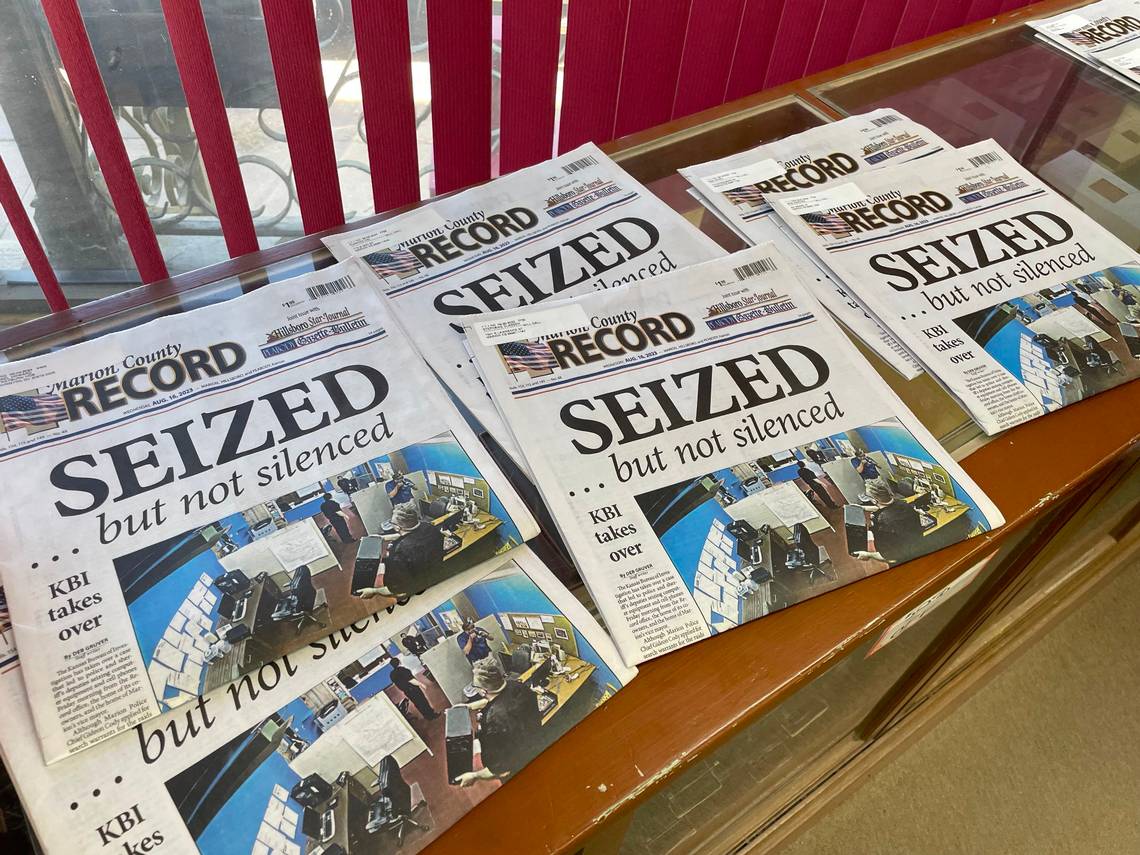Truthout is an indispensable resource for activists, movement leaders and workers everywhere. Please make this work possible with a quick donation.
At least 12 journalists were arrested or detained this year across the U.S., according to the U.S. Press Freedom Tracker’s annual report.
“As in other years, the most visible — and often the most hazardous — form of newsgathering is covering breaking news on the scene,” the report says.
Five of the reporters arrested or detained this year were covering protests. In just over a month, three journalists were charged with disorderly conduct, jaywalking, and criminal trespassing while reporting on pro-Palestinian protests sparked by Israel’s genocide in Gaza.
In 2023, journalists in the U.S. were also subjected to 30 subpoenas/legal orders, 11 prior restraints, 11 chilling statements, 11 instances of equipment damage, seven denials of access, four equipment searches or seizures, and 44 assaults.
“The criminalization of routine journalism this year shows authorities either do not understand newsgathering practices or, more alarmingly, do and use prosecutions as a cudgel to chill future reporting,” the report says.
Multiple reporters were criminalized for routine newsgathering practices, like “asking too many questions” or “publishing.” Hank Sanders, an Illinois-based reporter, was mailed three citations in October for “interference/hampering of city employees” when he emailed and called a local mayor for comment on a recent flood. Camryn Sanchez, a journalist in Arizona, was served a restraining order filed by state Sen. Wendy Rogers (R) for investigating whether Rogers actually lived in the district she was representing. Two Los Angeles Times reporters were also accused of “stalking” by a local police union for going to an officer’s home for a comment for an article on the 2021 detonation of a seized fireworks that seriously injured 17 people.
“Attempts to criminalize routine journalistic activities, such as contacting public officials or the subjects of stories, send a chill through the heart of newsgathering,” the U.S. Press Freedom Tracker says in its report.
In August, an entire town’s police force raided the Marion County Record. The paper said the police used “Gestapo tactics” and seized “everything we have.” The search and seizure prompted a state investigation into the police actions.
“It’s going to have a chilling effect on us even tackling issues,” Eric Meyer, owner of the Marion County Record, told the Kansas Reflector.
Thirty journalists and media organizations, including Bloomberg News and former ProPublica reporters, were also summoned by courts to identify their sources or produce their reporting materials. One news organization, Bakersfield Californian, was held in contempt of court when it refused to provide interview questions and notes from one of its reporters.
In the first instance documented by the U.S. Press Freedom Tracker, an Alabama publisher and reporter at Atmore News are also facing felonies explicitly for publishing. The publisher, Sherry Digmon, and reporter, Don Fletcher, were prosecuted for publishing an article on a grand jury subpoena regarding an ongoing investigation related to school board funds.
“Arresting journalists for reporting the news is blatantly unconstitutional,” Freedom of the Press Foundation (FPF) Director of Advocacy Seth Stern said in a statement.
Since 2017, journalists have been awarded more than $4 million in lawsuit settlements alleging wrongful detainment or arrests. In November, Josie Huang, a reporter for NPR member station LAist 89.3, received a $700,000 settlement, the largest settlement for an individual journalist in connection to 2020 protest coverage. In 2020, at least 146 journalists were arrested or criminally charged and 633 reporters were assaulted.
“This settlement upholds the rights of journalists and helps ensure that what happened to me won’t happen to other reporters,” Huang said in a statement. “My arrest was traumatic, but I hope that some good can still come of this experience.”
A terrifying moment. We appeal for your support.
In the last weeks, we have witnessed an authoritarian assault on communities in Minnesota and across the nation.
The need for truthful, grassroots reporting is urgent at this cataclysmic historical moment. Yet, Trump-aligned billionaires and other allies have taken over many legacy media outlets — the culmination of a decades-long campaign to place control of the narrative into the hands of the political right.
We refuse to let Trump’s blatant propaganda machine go unchecked. Untethered to corporate ownership or advertisers, Truthout remains fearless in our reporting and our determination to use journalism as a tool for justice.
But we need your help just to fund our basic expenses. Over 80 percent of Truthout’s funding comes from small individual donations from our community of readers, and over a third of our total budget is supported by recurring monthly donors.
Truthout’s fundraiser ended last night, and we fell just short of our goal. But your support still matters immensely. Whether you can make a small monthly donation or a larger one-time gift, Truthout only works with your help.
